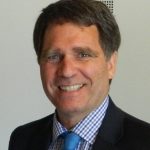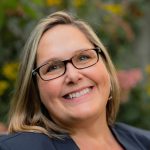Pre-Conference Workshops
Enhance your 2026 SEMM National Conference experience by joining a pre-conference workshop (or two)! These exclusive half-day, 3-hour sessions—created by SEMM professionals for SEMM professionals—deliver practical strategies and actionable insights you can immediately apply at your institution.
Space is limited. Register early to avoid disappointment.
Date & Time
Tuesday, April 7, 2026
Morning Sessions: 9 a.m. to 12 p.m. (ET)
Afternoon Sessions: 1 to 4 p.m. (ET)
Sheraton Hamilton Hotel
116 King Street West, Hamilton, ON
Morning Sessions
9am - 12pm
The Efficiency Blueprint: From Surviving to Thriving in Tight Times
When resources are stretched, “doing more with less” often results in overextension and burnout. But what if the real key to thriving is doing less—but better?
This workshop explores how simplifying processes, clarifying priorities, and reducing complexity can unlock greater efficiency and impact.
Through real-world case studies and interactive discussion, participants will see how subtraction—not addition—can strengthen alignment with institutional goals, improve outcomes for students and staff, and build confidence even in lean times.
Whether you're in the thick of it or planning your way out, this workshop offers a roadmap for turning institutional strain into strategic opportunity.
Learning Outcomes:
- Identify opportunities to streamline processes, programs, and practices for maximum impact.
- Apply strategies to align limited resources with institutional priorities and student success.
- Learn from real-world examples where simplification and clarity led to stronger outcomes for students, faculty, and staff.
Hide Description
Dan Seneker
Associate Vice President, Enrolment Management & Registrar, Saint Mary's University
Using the Right Data to Support your Strategic Enrolment Plan
In this interactive session, participants will learn and discuss how to effectively engage in data collection and analysis to establish the "why" for their strategic enrolment plan. Topics will include data flow through the student lifecycle, data types (internal and external), environmental scanning, situational analysis, and evaluation/assessment. Participants will work in groups as they apply data principles to enrolment scenarios.
Learning Outcomes
- Explain the role of data in establishing the “why” behind a strategic enrolment plan, drawing on internal, external, and environmental sources.
- Apply data collection and analysis principles to real enrolment scenarios in group activities.
- Recognize how data flows through the student lifecycle and use it to inform situational analysis, evaluation, and decision-making.
Hide Description
Dr. Clayton Smith
Professor, Faculty of Education, University of Windsor
Retention-Powered Recruitment: Leveraging Student Success for Enrolment Messaging
Retention is one of the strongest recruitment strategies—yet often the least utilized. This interactive workshop helps enrolment and marketing professionals uncover what truly differentiates their institution’s student experience and how to communicate it effectively. Through SEM concepts, data exploration, and collaborative exercises, participants will learn how to link recruitment strategy with real student outcomes and create compelling, evidence-driven messaging.
Learning Outcomes
- Understand how to connect retention and student experience to recruitment
- Use data to surface authentic differentiators
- Explore key student experience moments
- Develop student-centred, evidence-based communications
Hide Description
Bonnie Crocker
Senior Strategic Enrolment Management Consultant, Academica Group
Afternoon Sessions
1pm - 4pm
From Idea to Approval: Navigating Governance in Canadian Higher Ed
In Canadian post-secondary institutions, strategic enrolment initiatives must navigate a layered governance ecosystem—committees, senates, and boards—each with distinct mandates and decision-making rhythms. This pre-conference workshop, led by a governance officer with deep expertise in SEMM and institutional strategy, offers senior leaders a practical framework for advancing initiatives through formal governance channels. It also equips them to coach and support their teams in crafting proposals that resonate with institutional priorities and governance expectations.
Through a blend of strategic discussion and case-based analysis, participants will explore how to align enrolment proposals with governance structures, identify key stakeholders and approval pathways, and refine governance-ready submissions. Ideal for executives and senior administrators who sponsor SEMM initiatives or guide middle managers through board-facing processes, this session will strengthen institutional alignment, cross-functional collaboration, and the strategic positioning of student-centered innovations.
Learning Outcomes:
- Understand the structure, roles, and decision-making processes of governance bodies within Canadian post-secondary institutions.
- Apply governance decision-making knowledge to strategically align SEMM proposals with institutional priorities and governance expectations.
- Develop and refine governance proposals considering the formal channels required for endorsement.
Hide Description
Danny Freire
Governance Officer, University of Saskatchewan
Creating a SEM Culture With or Without A SEM Plan
Creating and sustaining a Strategic Enrolment Management (SEM) culture is essential to effective enrolment planning and management. In this interactive session, participants will learn and discuss how to effectively develop a SEM culture with or without a SEM plan. Participants will work in groups as they apply SEM culture and organizational development principles to enrolment scenarios.
Learning Outcomes:
- Identify the key elements of a strong SEM culture and explain their impact on enrolment success, with or without a formal SEM plan.
- Apply SEM culture and organizational development principles to practical enrolment scenarios through group activities.
- Explore strategies to build collaboration and shared ownership of enrolment goals across departments and stakeholders.
Hide Description
Dr. Clayton Smith
Professor, Faculty of Education, University of Windsor
Student Journey Mapping: Learning from Students to Unlock New Opportunities
Rooted in creating a student-centric experience, the concept of Student Journey Mapping can be a cornerstone for decision-making in postsecondary education. From changing how students are recruited to how donors are engaged, the Student Journey Mapping process can help good business practices evolve into great ones.
In this workshop, participants will dive into the process of Student Journey Mapping by exploring how to collect first-party data to shape organizational decision-making. The facilitator, JP Rains, Director, Communications & Digital Strategy at Laurentian University will share the successes and failures he’s experienced while working with over a dozen institutions helping participants improve their outcomes.
Learning Outcomes
- Understand how Student Journey maps can be used to benefit your institution
- Determine internal factors that should be considered prior to beginning the process
- Outline which audiences and sub-audiences should be mapped to meet the needed journey outcomes
- Discover how post-secondary marketing and communications professionals can apply learnings from other industries to benefit their institution
- Identify qualitative and quantitative data that should be collected and assessed during the mapping process
- Prioritize findings into an action plan outline highlighting what to optimize, opportunities to move forward and solutions to common barriers
Hide Description
JP Rains
Director, Communications & Digital Strategy, Laurentian University
Pre-Conference Workshop Rates
Half-day
$425
each
Registration
Are you trying to calculate and/or hold a rate for your group? Is payment by credit card a challenge? Let us know and we'd be pleased to help. Email jennifer@brainstorm.ca with any questions that you have.
Cancellation Policy
No refunds will be provided within three weeks of the conference. Cancellations three weeks or more before the event date will be refunded less a $100 administration fee. Substitutions from the same organization are welcome at no cost up to three weeks before the event date.




